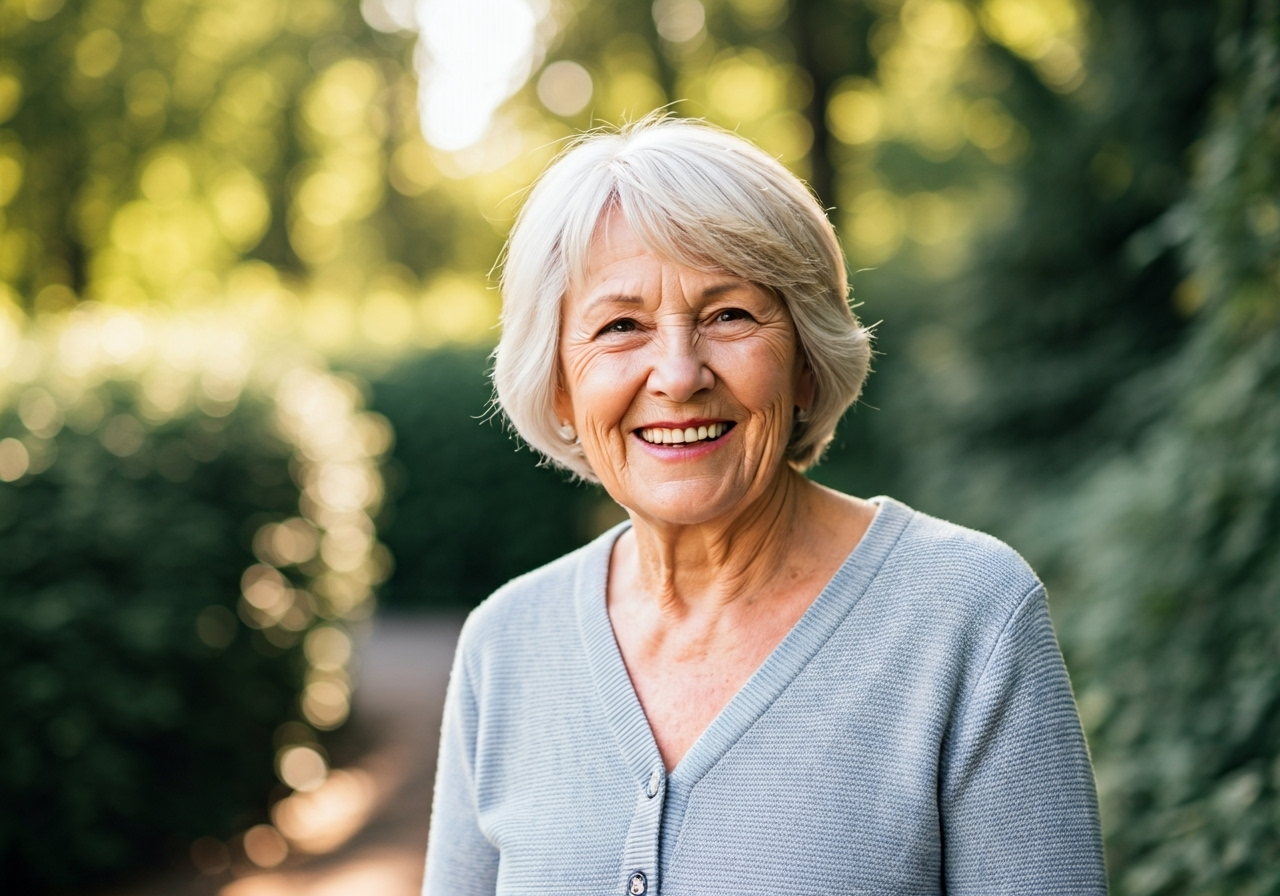
Mental health care for older adults is just as important as physical health care. As people get older, they go through many life changes. Losing loved ones, dealing with health problems, or feeling left out can affect how they feel and think. If mental health conditions like depression and anxiety are not taken care of, they can turn into bigger problems. This can lower the quality of life. A primary care provider can help older adults see these problems early. They can guide them to good mental health services. We need to make mental health care for older adults in Houston a priority.
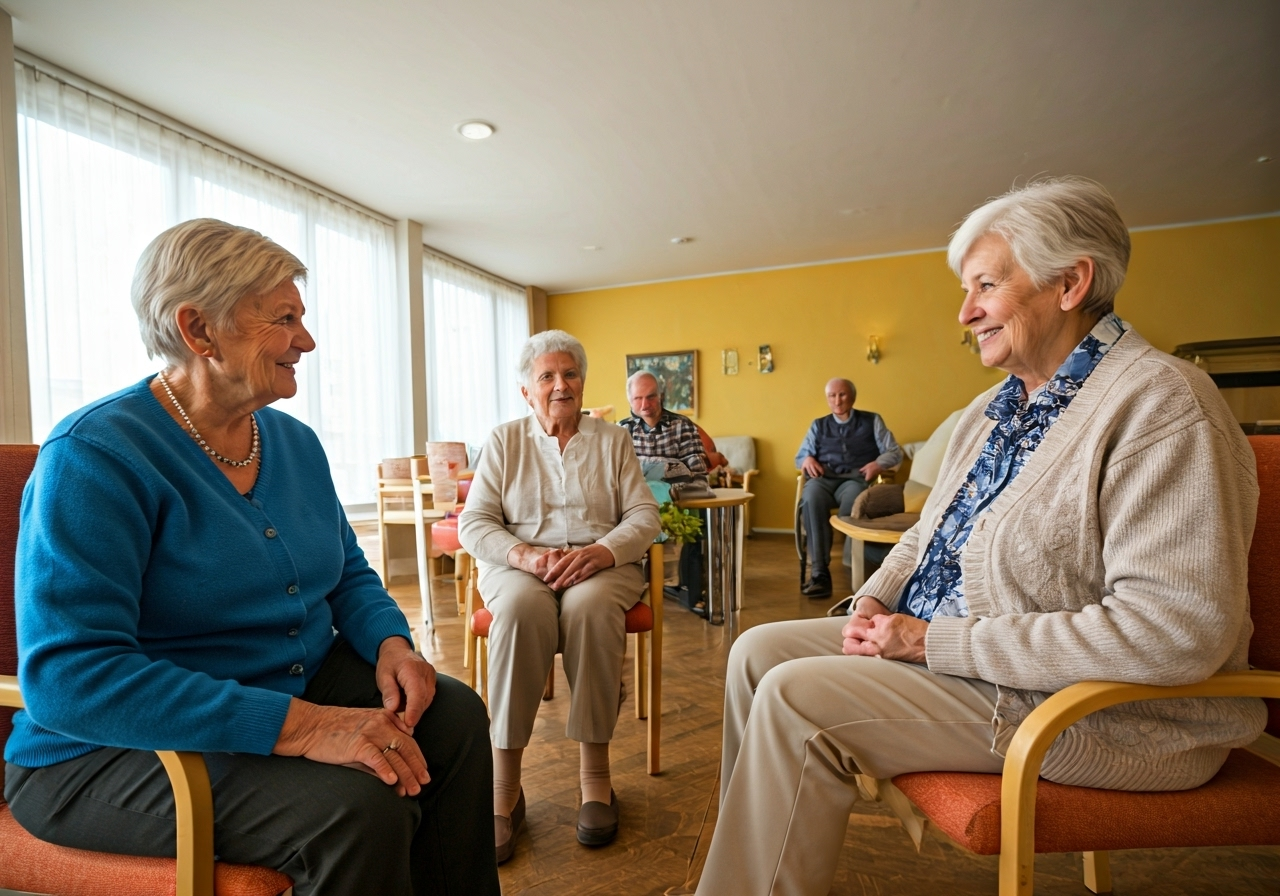
Good elderly care is not just about physical health. Mental health conditions like depressive symptoms, anxiety disorders, and other mental health problems are common in older people. These problems can make daily life hard if they are not handled well in geriatric mental health care.
It’s important to include mental health care as part of elder health care. Using tools like the patient health questionnaire helps us spot signs of mental health problems early. This kind of collaborative care makes it easier for seniors to get mental health help. It also lets them have a better quality of life.
Elderly care in Houston, TX, is made to meet the special needs of older adults. It gives them health care and human services that cover many areas. From primary care to assisted living, older adults can get the care they need. This helps make sure the place they live in is safe, kind, and caring.
The main providers in Houston offer health care for every age. They look after the physical, mental, and thinking needs of each person. Services cover things like checkups and mental health checks. This helps seniors stay healthy and feel in control of their life. Elderly care in Houston is always changing to give the best care for older adults every day. Things like health promotion are also part of how care gets better over time.
Caregivers in Houston have to do more than just help with physical things. They work with mental health too, for example with worries, sadness, or other mental health conditions. Houston’s human services and mental health clinics work as a team to make sure every older adult gets full care for the body and mind. Lot of effort and awareness go into making sure that all older adults are seen and cared for in every way when it comes to health.
Mental health problems are common in older adults. The main issues are depressive symptoms, cognitive impairment, and anxiety disorders. Many times, these health problems come from social isolation, grief, and declining physical health. Mental health services that focus on easing these symptoms can help a lot.
Cognitive impairment like dementia or mild cognitive decline shows some of the real challenges in geriatric mental health. Seniors may face forgetfulness, anxiety, or depression. These can change their mood and stability. Good treatment plans close these gaps and also support mental wellbeing.
Some programs that target anxiety disorders or depressive symptoms—like cognitive therapy or using medicine—help older adults feel in control again. Better care joins everything together and builds a more welcoming community for older people.
Mental health is very important for older adults. Some risk factors like ongoing illness, losing a loved one, and poverty can make emotional struggles harder. When people see warning signs early, it can help make the quality of life better for older adults.
If seniors know more about mental health, they can see signs of sadness or thoughts of suicide before these problems get worse. Learning more about mental health helps families too. They can learn ways to support and help their loved ones.
When we talk about mental health more, the whole community can help lower the barriers older adults face in getting help. These mental health awareness campaigns make it feel normal to ask for help. This way, mental health problems get noticed and treated quickly, and the quality of life for older adults can improve.
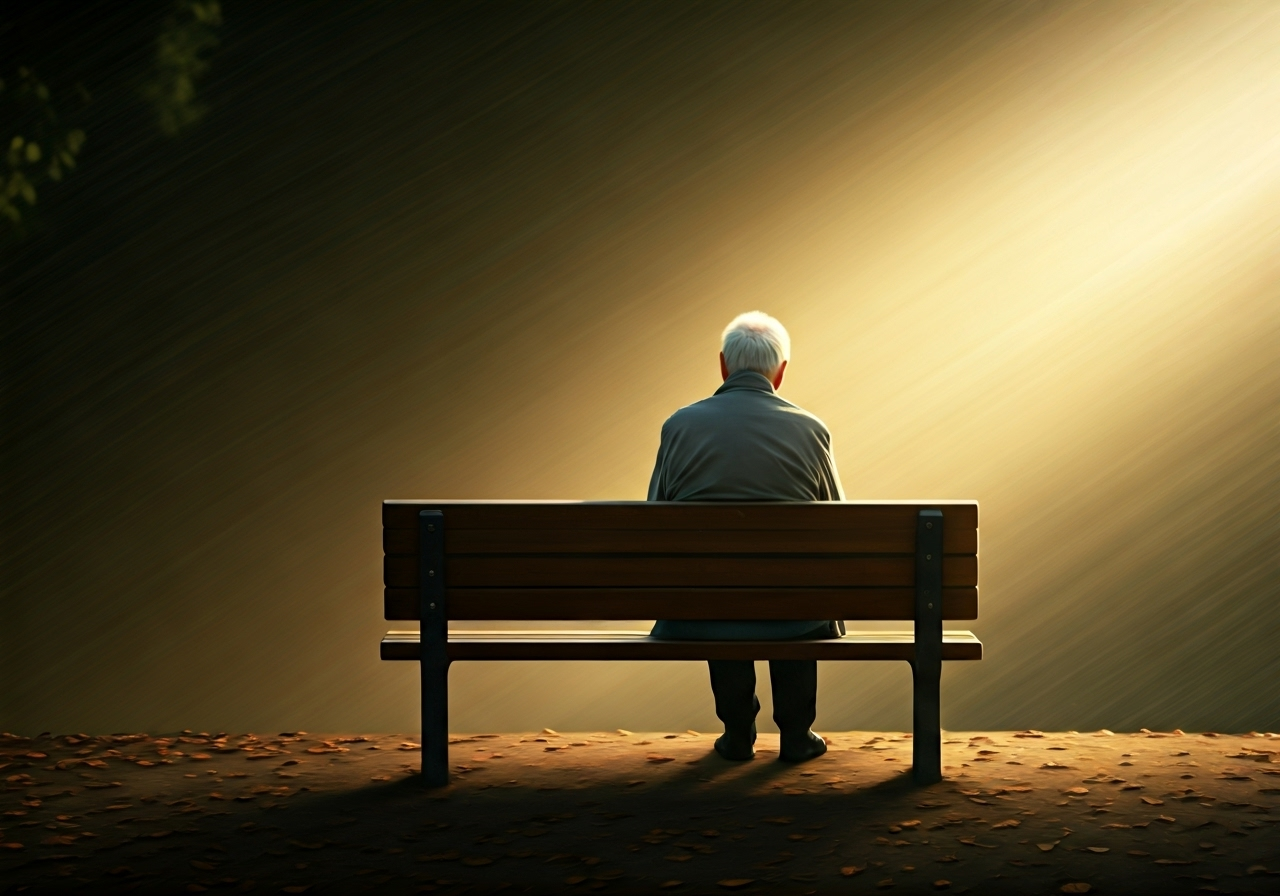
Things like social isolation, poverty, and not having enough access to health services make mental health problems worse for older people. These risk factors can lead to more anxiety disorders and depressive symptoms in seniors.
It is important for health promotion that people understand the role of social determinants. Programs that try to fix these issues, like linking seniors to community resources, help support good mental health. When communities use wide-ranging interventions, they help older people in Houston build better emotional habits.
Social prejudices like ageism and stigma hurt the mental health of older adults. When people treat them as less important because of age, or use stereotypes, it can break down their confidence. Seniors may feel that they are not valued in society.
Stigma around mental health care and mental disorders often stops older adults from getting help or even talking about their mental health. When someone has depressive symptoms or dementia, there can be bigger issues behind it. The fear of being judged makes things worse. That is why programs that break these harmful beliefs are very important.
If we build places that get rid of this kind of stigma, older adults in Houston can talk openly about their mental health care needs. Awareness campaigns help push for real changes, making it better for seniors to get the geriatric mental health care they need.
Feelings of being lonely and apart from others have a strong effect on older people. These feelings often make them more likely to have depressive symptoms and thoughts of suicide. When older adults face social isolation, there can be no one around to help, so their mental health gets worse.
Mental health services in Houston work to help with loneliness in the aged. Community programs there are set up to help people make new friends and build ties again. Taking part in these groups can lower depressive symptoms in seniors.
Mental health programs that focus on social inclusion give older adults places to meet others and get support. Here, they can talk about mental health problems and feel less alone. By joining in, they may feel connected to others again and that can help with their mental health and other health problems.
Economic problems, like having less money, make mental health issues harder for older Texans. When there is not enough income, it can stop people from getting basic health care. This includes both primary care and mental health services.
Things like Medicaid expansion and special human services help older adults by making care less costly. By tackling these money barriers, more seniors can get the mental health help they need.
Community programs in Houston connect older adults with mental health services. They offer the chance to get checked for mental health problems at little or no cost. This good affordability helps older adults who do not have a lot of money and can change their lives for the better.
To go forward with the next headers in the outline, the blog will talk more about things like mental health screenings, what keeps older adults from care, and how technology can be used in mental health for seniors.
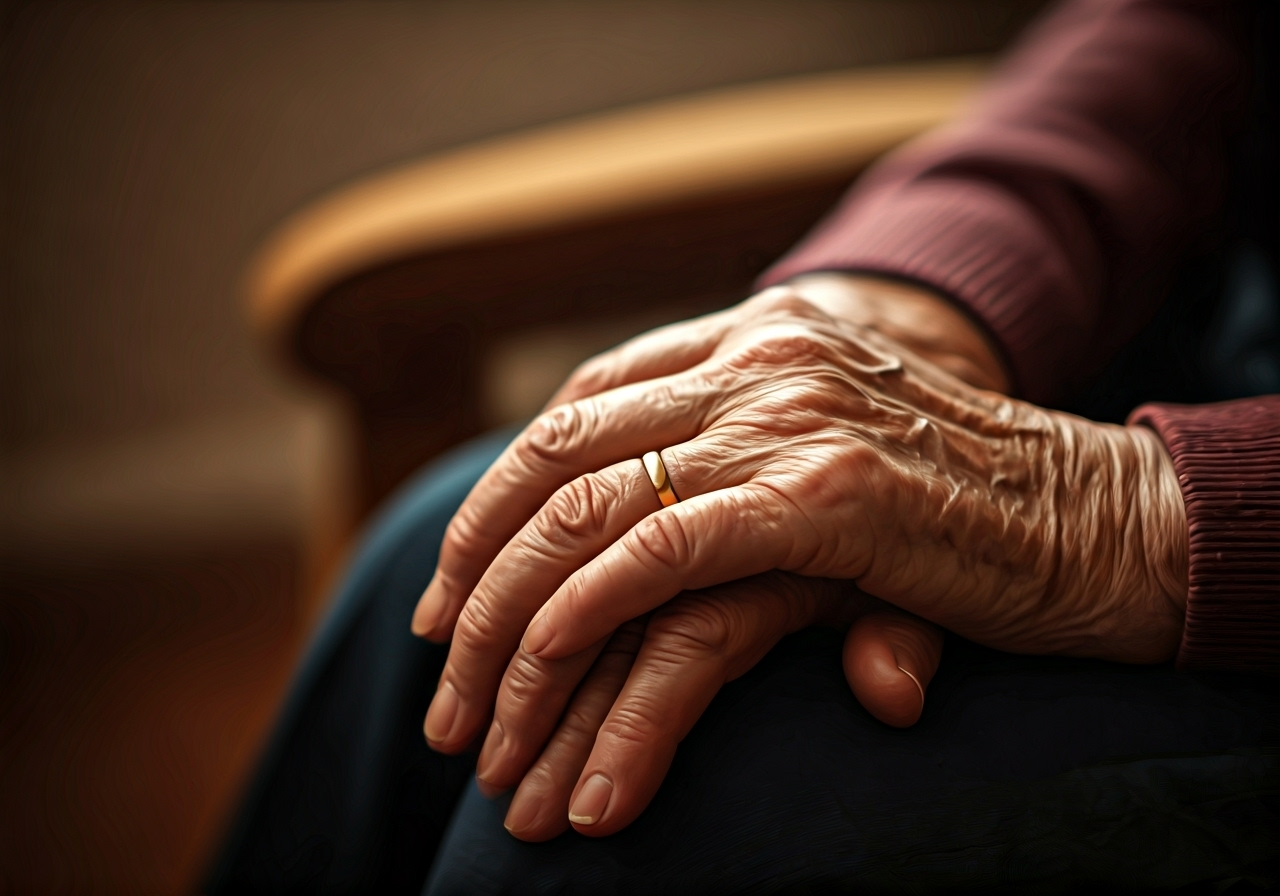
Mental health is a big concern for many older adults. You may see psychiatric disorders in them, like depression and anxiety. When depressive symptoms show up, or if someone has anxiety disorders, it can lower the quality of life. Some people may also have mild cognitive impairment. This can lead to cognitive impairment and may raise the chance of suicidal ideation for them. That is why it is important to use screening tests, for example, the geriatric depression scale. These tests help to spot mental health conditions early. If caregivers and others are able to notice symptoms right away, they can react fast. This will help to make better treatment plans and give better care to these people. In the end, it helps make life better for older adults who are dealing with these issues.
Many older adults live with mood problems and depressive disorders. These issues often go unseen and untreated, which can hurt the quality of life for them. Some signs to look out for include always feeling sad, not to have interest in things they once liked, or feeling much more hopeless. Finding these depressive symptoms early is important so that help can work better. Primary care doctors can use screening tools like the Geriatric Depression Scale to find people who might be at risk. Using collaborative care, and giving older adults treatment plans made just for them, can help improve mental health services for seniors. This can help them stay strong and feel better both day to day and in the long run.
There is more and more research showing that many older adults live with anxiety disorders. These feelings often get worse because of health problems, being alone, or going through big life events such as stopping work or losing someone close. Anxiety disorders, like general anxiety, panic disorder, or social anxiety, can have a big effect on their quality of life. It is important that older adults have access to the right mental health services. These services help with full checks and treatment plans made just for them. Primary care doctors have a key job in noticing the signs of anxiety in older adults. They do this by using simple screening tools, which helps to make sure that seniors can get the support they need to deal with anxiety and feel good about their mental health.
Dementia can have a big effect on mental health for older adults. People who have this may feel more alone, worried, or sad. This kind of cognitive impairment often shows up as memory loss. There can also be poor judgment and changes in personality. All of this can make their mental well-being worse.
It is important to use regular screening and good checks early on. This helps healthcare providers spot problems soon. They can then create treatment plans that fit both cognitive and emotional needs. Supportive actions, such as collaborative care with mental health experts and family, can really help. When you bring everyone in to help, it can boost the quality of life for older adults. This kind of teamwork can help people face cognitive decline and keep some of their strength.
Substance use disorders are a big problem for older adults, but people often do not talk about it. Things like chronic pain, social isolation, and mental health conditions can make it more likely that they will turn to substance abuse. When they feel stressed or sad, healthy ways to deal with it might not seem as easy as taking something for quick relief. Studies show that alcohol use disorder and misuse of prescription medicines are common in this group. This can make mental health problems worse. It is very important to notice these signs, so the right help can be given. When healthcare providers see what is happening with substance use, they can give better care. They can make plans that look after both mental health and physical health for these older adults. This helps to manage health problems in a better way.
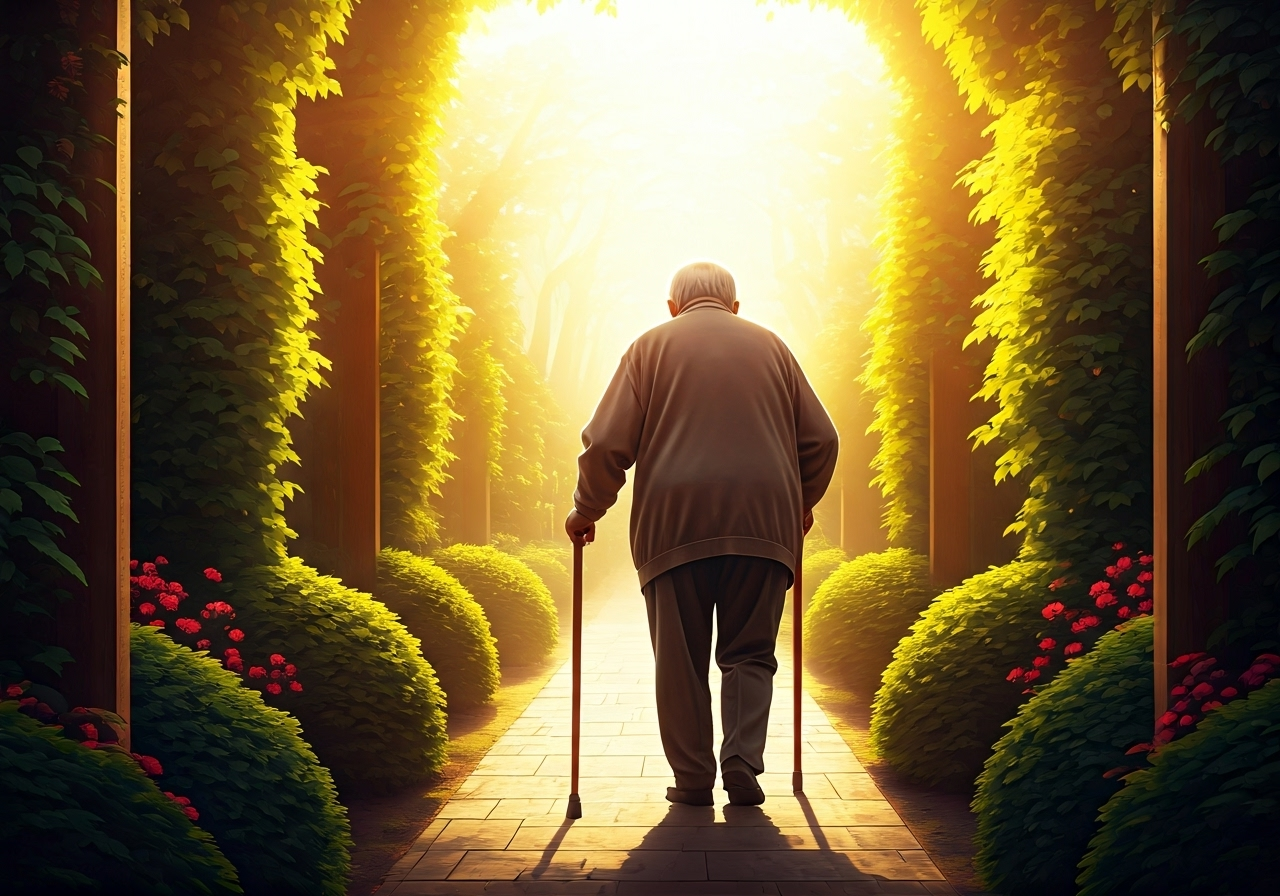
Physical health can affect mental health in a big way, especially for older adults. If there are health problems or illnesses that do not go away, these can often lead to more depressive symptoms. This can make the quality of life go down. When people have limits on what they can do, they may spend less time with others. This type of social isolation can make mental health conditions, like anxiety disorders and depressive symptoms, even worse.
It is important for healthcare providers to check on these things often. Regular visits help to see how physical health and mental health can be linked. It is also important to know what medicine someone is taking, since side effects may change how someone feels. The best way to give care to older adults is to use collaborative care that looks at both physical health and mental health. This way, seniors get a full plan for treatment to help improve their lives.
Chronic sickness is often linked with mental health and can make life harder for older adults. When you have something like diabetes, heart disease, or arthritis, you may also have depression or worry. This makes it tougher to feel well because these problems feed off each other. Research from the National Institute of Mental Health says that when you live with a body illness, it can also make psychiatric disorders worse. This is because people struggle with the feelings that come after getting their diagnosis.
Working together, doctors and mental health professionals can help with both your body’s needs and your emotions. This method, called collaborative care, helps older adults get the support they need. It’s important because these comprehensive plans and checks can make a big difference in the quality of life. When older adults get a mix of mental and physical help from their care team, they can often manage things better and feel more like themselves.
Keeping track of medication side effects is very important for older adults. This is because many seniors have to take more than one medicine at a time, known as polypharmacy. This can make them more likely to have bad side effects. Some types of medicine, called psychotropic medications, can cause problems like depressive symptoms, anxiety disorders, or issues with thinking, such as cognitive impairment. These side effects can also make their other mental health conditions worse.
It is a good idea to have regular check-ups with healthcare providers. This way, they can look at the medicine and see if it matches what the patient needs for their mental health. To find out early if there are problems from the medicine, tools like the Geriatric Depression Scale can be used.
Also, when caregivers and people who work in primary care know about these possible side effects, they can help older adults in a better way. This support can really improve their quality of life.
Physical disabilities can have a big effect on the mental health of older adults. When someone can't move around like they want, it may make them feel upset, sad, or cut off from others. This can lead to problems like depression and anxiety disorders. If they can't do the things they once enjoyed, these feelings can get even worse and hurt their quality of life.
To help, they need support that covers everything, like physical therapy and mental health services. This kind of help is important for dealing with these feelings. When we see how physical health and emotional health affect each other, we can make better plans to help people stay strong and improve mental health for older adults who are going through this. This support can lower social isolation and make life better for them.
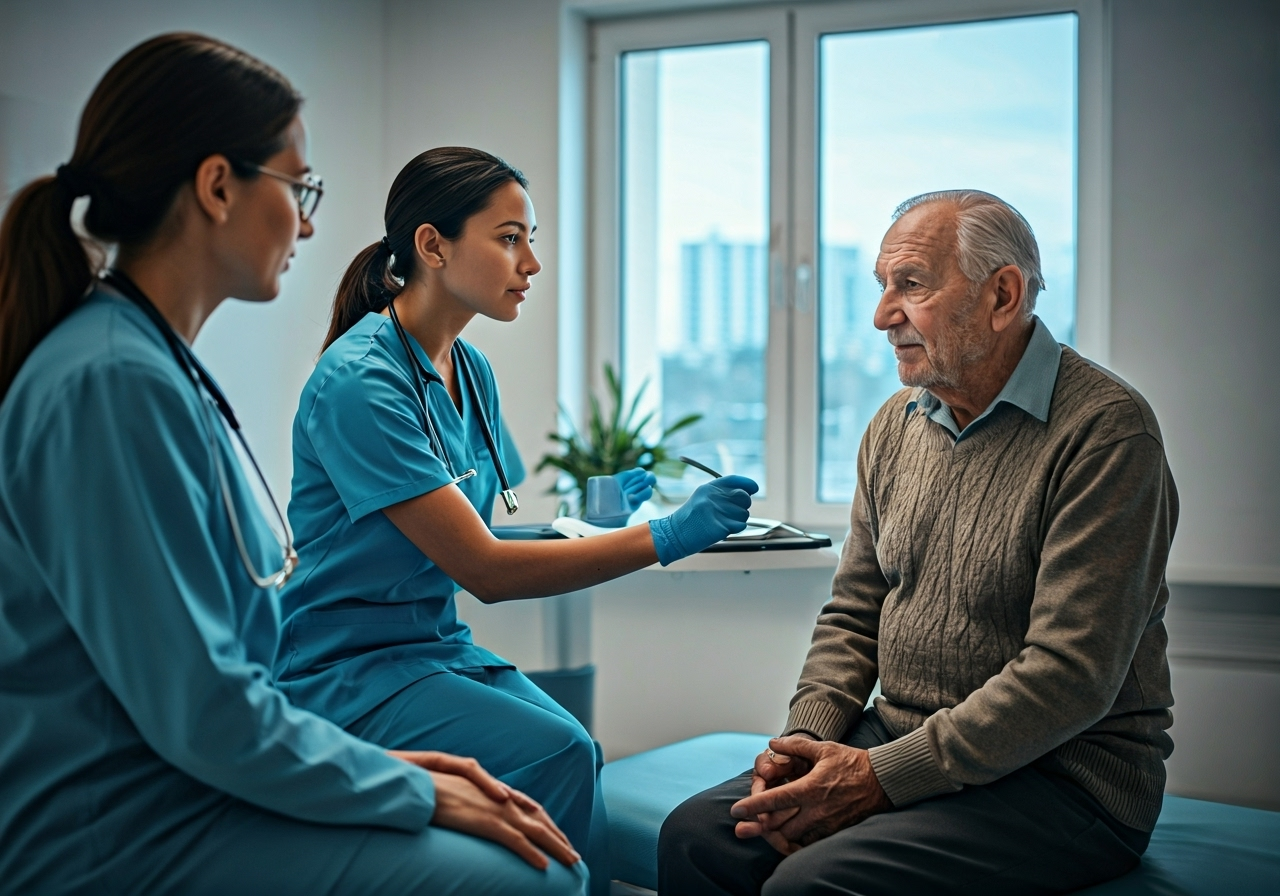
Regular screenings for mental health problems are very important for the wellbeing of older adults. If these checks find issues early, people can get help for things like major depressive disorder, anxiety disorders, or problems with memory and thinking. This early action helps improve their quality of life. Health care teams often use the Geriatric Depression Scale and other patient health questionnaires in primary care. These tools help with the full health check needed in primary care settings. When health care providers keep track of mental health, they can work together to make better plans for helping seniors. Focusing on mental health screenings is key when it comes to caring for older adults.
Regular mental health screenings are important for the early finding and care of mental health conditions in older adults. These health care checks help spot signs like anxiety disorders or depressive symptoms. If we do not find these early, they can turn into bigger health problems, like suicidal thoughts or actions. Doing these screenings often in primary care settings helps doctors and nurses make treatment plans that fit the needs of each older person. By keeping track with routine checks, we take a more active role in mental health care. This helps improve quality of life for older adults and supports their well-being. It also helps this group that may need more help than others.
There are many good tools out there to help check mental health in older adults. These help doctors spot any concerns early and plan the right care. The Geriatric Depression Scale (GDS) is a trusted tool made just for older people. It looks for depressive symptoms in a simple way. The Patient Health Questionnaire (PHQ-9) is another tool used to look at mood problems and see how they change over time.
Using tools like these in primary care helps give better mental health services to older adults. These regular checkups help people get help sooner, which can make a big difference in the quality of life for older adults. When we use the Geriatric Depression Scale and Patient Health Questionnaire, we can keep a closer eye on mental health in primary care settings. This means people get the care they need at the right time, which helps them feel better overall.
Primary care providers are often the first people to spot mental health issues in older adults. They play a key role because they see these patients first. These providers can use tools like the Patient Health Questionnaire or the Geriatric Depression Scale to check for problems. By really listening and talking with care, they can find signs of depressive symptoms, anxiety disorders, or problems with memory and thinking that others might miss. A collaborative care method helps. With this, primary care teams can send older adults to mental health specialists when needed. This way, mental health and physical health issues are both treated. It helps improve the well-being of older adults who may need more support.

There are many things that stop older adults from getting the mental health care they need. A big issue is getting to places because it can be hard for them to find a good way to travel. This can stop many seniors from making it to their health care or mental health appointments. There are also not enough geriatric mental health professionals to help, which makes this even harder for those who need someone to talk to or help them.
Some older people may face language or cultural barriers, leaving them unsure about how to share sensitive information. These can cause people to not get the support they need. To make things more difficult, trouble with money or confusing health insurance can stop them from using important mental health services. This often means that many older adults may not know if they have mental health conditions or get help for their psychiatric disorders.
Accessibility is still a big challenge for many older adults in Houston. There are not a lot of public transportation options, and this can stop them from getting to important health care appointments. This is true for both physical and mental health visits. When older adults cannot get to these appointments, they may feel more social isolation or worry, which can add to mental health problems. Also, the cost of getting a ride and the small number of ride services for seniors make it even harder for them. The best way to fix these problems is for local groups and health care teams to work together. This is the only way for older adults in Houston to get mental health and other care. It helps their mental well-being because they do not have to deal with transportation problems.
The lack of geriatric mental health professionals has a big effect on the quality of mental health care for older adults. More people are getting older now, and the need for mental health care goes up every year. The there are not enough people to help with this. Many people who work in primary care settings feel they are not ready to handle complex psychiatric disorders in their older patients. This means there are often problems like not having the right treatment or not getting a diagnosis on time. Because of this shortage, things like social isolation, depression, and other mental health conditions often get worse. It can also lead to an increase in suicidal behavior in this group. We have to deal with this problem if we want all people, like older adults, to get good mental health care when they need it.
Cultural and language barriers can make it hard for older adults to get the mental health services they need. There are often misunderstandings because people come from different backgrounds. This can bring up stigma for mental health issues, and may stop seniors from reaching out for help. If someone does not know the language well, it is tough to talk with health care providers. This means they might not get good enough treatment. When this happens, people can feel even more alone, and their risk for mental health problems, like depression and anxiety, can go up. Using mental health care and interventions that fit different cultures and hiring bilingual professionals can help a lot. It can make mental health care work better for older adults and support their wellbeing.
Finding mental health care can be hard for older adults. Many have little money and run into problems with insurance. The main source of their income, like Social Security, may not be enough to pay for basic mental health services. This can leave them at risk. On top of that, big differences in insurance plans mean some may not get to see the mental health professionals they need. People may also not have good access to mental health resources. Not having enough money slows down when and how people get diagnosed and treated for mental health issues. This can make things like depression and anxiety worse. Solving these money problems is so important. It helps make mental health care better and improves the quality of life for older adults.
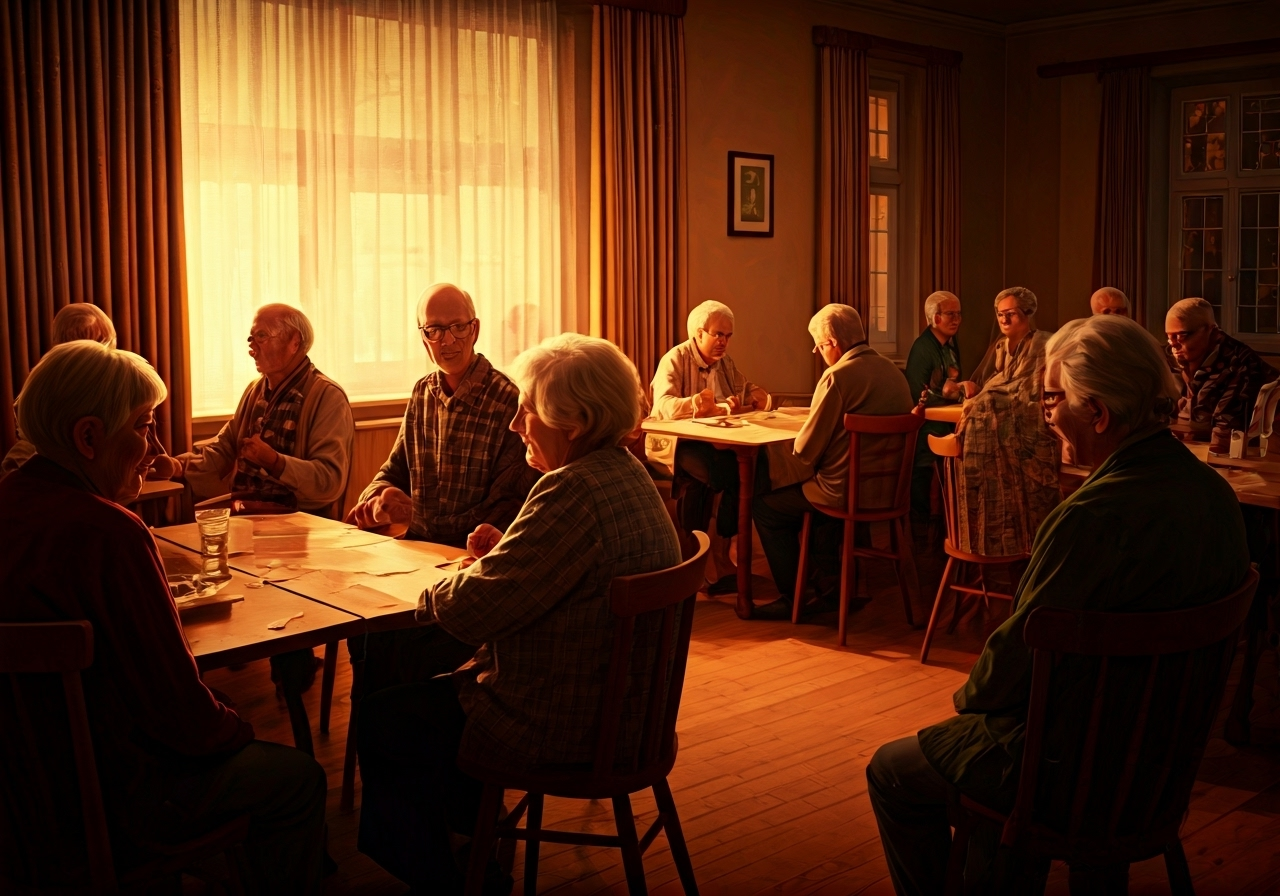
To help the mental health of older adults, it is good to make a place where people connect and support each other. Everyone can meet at community events, workshops, or do hobbies together. These things help people make friends and be less lonely. Being alone is one of the main risk factors that can hurt mental health.
When older adults keep learning new things, their minds stay sharp. This can make their quality of life better. There needs to be open talk and care between caregivers, friends, and family. This way, people can see when someone might need help for their mental health. Early action and the right support for each person can do a lot.
If all of this is done together, older adults feel stronger inside. They enjoy their day to day more, and are ready to face tough times.
Social connections are very important for the mental health of older adults. When they take part in community activities, they feel like they belong. This helps fight social isolation, which can cause mood problems. Building relationships by doing things together can lower depressive symptoms and make people feel better in general. Family and caregivers can help by asking older adults to join local events or support groups. Using human services and help from community groups also supports these connections. These steps can lead to better mental health for seniors.
Taking part in group activities can make life better for older adults. Being active in the community helps fight social isolation. It lets people meet and talk with others. When older adults join hobbies, do volunteer work, or visit cultural events, they get to spend time with others. This can help with depressive symptoms and anxiety disorders.
these social groups make people stronger and help them face tough times. they let people share their thoughts and support each other. it’s good for mental health. if communities focus on mental health services, they can build programs that help seniors make friends, learn new things, and live well in their neighborhoods.
Getting older adults to join in lifelong learning and fun hobbies can be good for mental health and overall well-being. Taking part in learning helps the mind stay active. This can help lower the chance of problems that come with getting older, like anxiety disorders. It can also help with things like forgetfulness. Hobbies give people a way to meet others. This helps stop feelings of being alone, which can make depressive symptoms worse for people. Programs like art classes or book clubs help people get creative. They also let older adults meet others and get support. Picking up new interests can help build emotional strength. It also makes the quality of life better. This helps seniors stay independent, as they look after their own mental health.
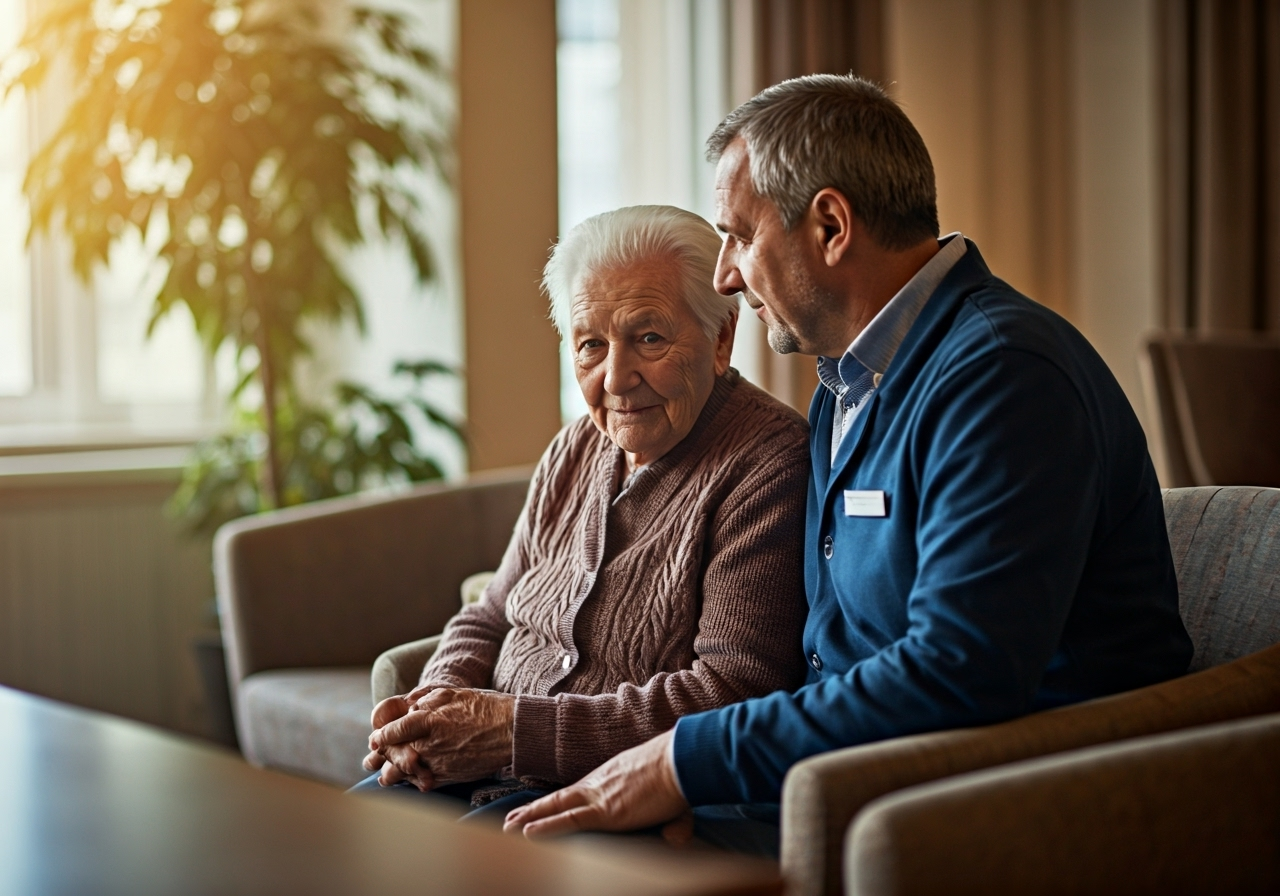
When caregivers and mental health experts work together, it helps the well-being of older adults. With this approach, mental health services become a part of the current health care systems for seniors. This helps get better results, and the care is more complete for them. Regular mental health checks in assisted living places make sure the psychological needs of their residents are cared for, along with physical health.
This way, it is easier to spot mental health conditions early. It also helps create a support system, so residents can get care right when they need it. Their mental health is cared for, just like their physical health. When all of this works together, it can make their quality of life much better.
Assisted living facilities in Houston, TX, have an important role in caring for the mental health of older adults. These places give seniors the support and care they need every day. This kind of help can make a big difference in how they feel and their emotional well-being. Staff help residents join in with others through social events and group activities. This way, people do not get left out or feel alone, which is a key issue when thinking of mental health conditions like social isolation.
Trained people working at these facilities can spot early signs of psychiatric disorders. They can also help get treatment for these problems quickly. Staff use a collaborative care model so that care is planned as a team. Mental health services are a part of each person’s day-to-day life. This system helps improve the quality of life for all residents in the home.
Collaborative care between caregivers and mental health professionals is very important for giving older adults the best care. When they work together, they bring different kinds of knowledge. This helps them create treatment plans that meet both the physical and mental health needs of older adults. Good communication makes sure caregivers understand the mental health conditions, like anxiety or depressive disorders, that their loved ones may have. Regular meetings help them check if the care plans are working well and give them a chance to make changes if needed. This way of working as a team makes the quality of life better for older adults. It also helps spot risk factors early and stops more problems with mental health from coming up.
Regular mental health checks are very important for older adults. These checks help to find and manage mental health conditions early on. In primary care settings, doctors can use simple screening assessments to spot problems like major depressive disorder, anxiety disorders, and memory issues. To do this well, health care providers use proven tools such as the Geriatric Depression Scale and the Patient Health Questionnaire. These tools help to get a good look at a person's health.
When older adults have regular mental health checks, it helps everyone work together better. Health care teams can come up with treatment plans that take into account both physical health and mental health. For example, collaborative care means bringing together different experts to help with what someone needs most. Doing these checks in routine visits helps to make sure no problem is missed. It adds to the quality of life for older adults and helps them get better health in the long run.
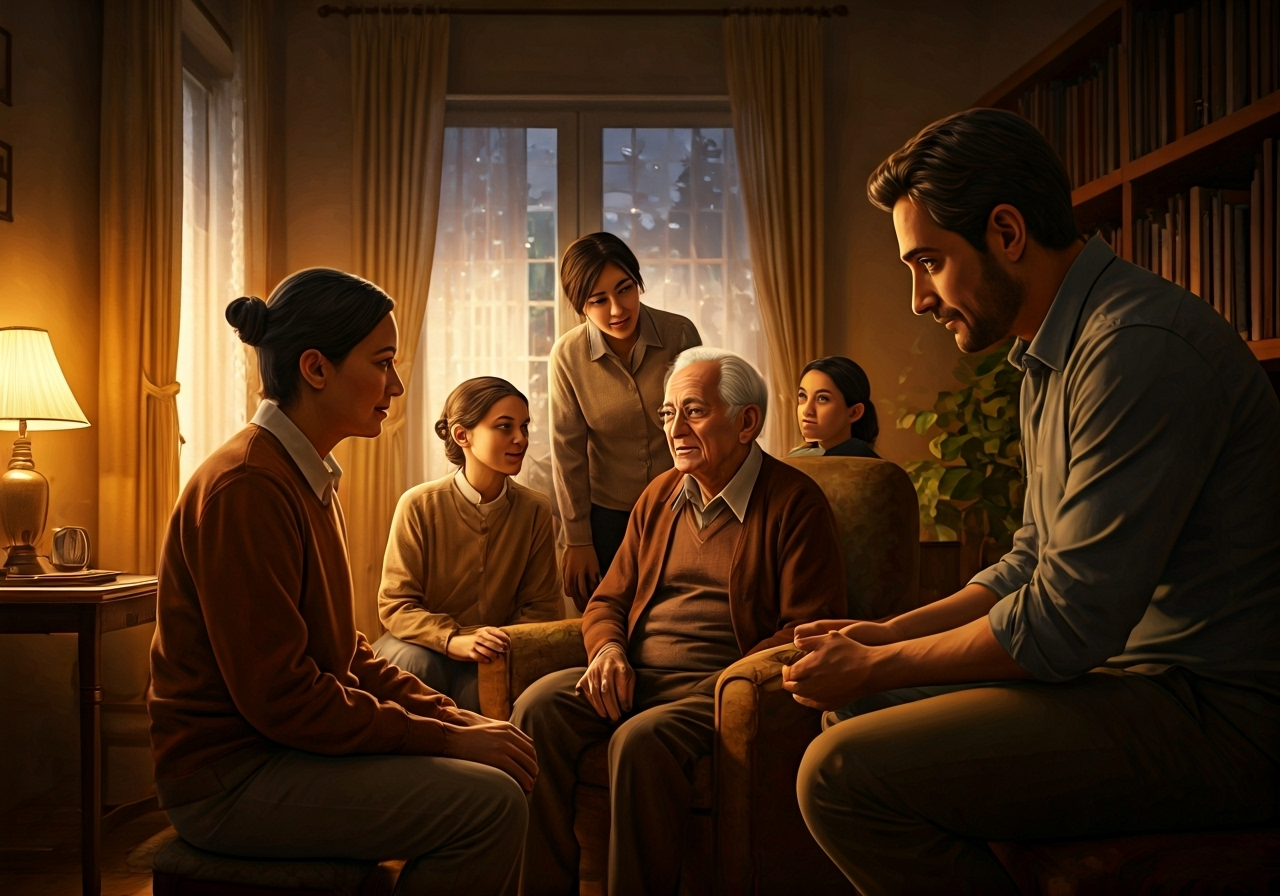
Family support is very important for the mental health of older adults. When family knows the warning signs of mental illnesses like depressive symptoms or anxiety disorders, they can help their loved one at the right time. Good ways to talk with each other help everyone share their feelings and lower the shame around mental health. It's good for family to find the right mix between letting an older person do things on their own and being there to help them. This helps keep their dignity. Making a loving home helps stop social isolation. This boosts how people handle hard times and helps them feel better overall. When families help, older adults feel listened to, safe, and valued as they try to improve their mental health.
Understanding the warning signs in mental health is important for families who want to help older adults. Little things can change, like pulling away from friends, feeling moody, or quickly getting forgetful. These things can show up before bigger mental health concerns happen, like depression or anxiety disorders. When family members learn about these signs, they get the tools they need to take action at the right time. This helps everyone in the family work together when it comes to mental health care.
Using helpful checks, like the Geriatric Depression Scale and other screening tools, helps people notice mental health problems sooner. Knowing about these signs can raise the quality of life for older adults. It can also help build trust and open talks about mental health issues in families. This makes sure all people, especially older adults, get the right mental health care they need.
Talking openly about mental health with older adults can help them feel more comfortable getting help. You can start these talks in a relaxed place to build trust. When you use kind and understanding words, you help them feel safe enough to let you in on how they feel. If you use active listening, like repeating what they say, it shows you care and are really paying attention. Do not use words that may label or judge. Talk about ways to stay healthy instead of focusing on problems. This will help the conversation stay positive.
Try to add natural, simple check-ins during the day. This makes talking about mental health feel normal. It can also help close the gap that sometimes grows between older adults and their family when it comes to mental health problems. This way, health promotion for older adults becomes a part of daily life.
It is important for older adults to keep their independence while still getting help when they need it. This is good for their mental health. When seniors are able to make choices, it gives them more self-worth and stops them from feeling helpless. Letting them do daily tasks, while also helping out if needed, is one way to find the right balance. This can make their quality of life better.
Family and caregivers need to watch out for small changes that could point to mental health problems. It is important to talk to older adults in a kind and caring way about these feelings or concerns.
Getting older adults involved in community activities and hobbies is very helpful. These things can make people feel more strong. They also help to fight social isolation by making real connections. This is good for both their mental health and their overall quality of life.
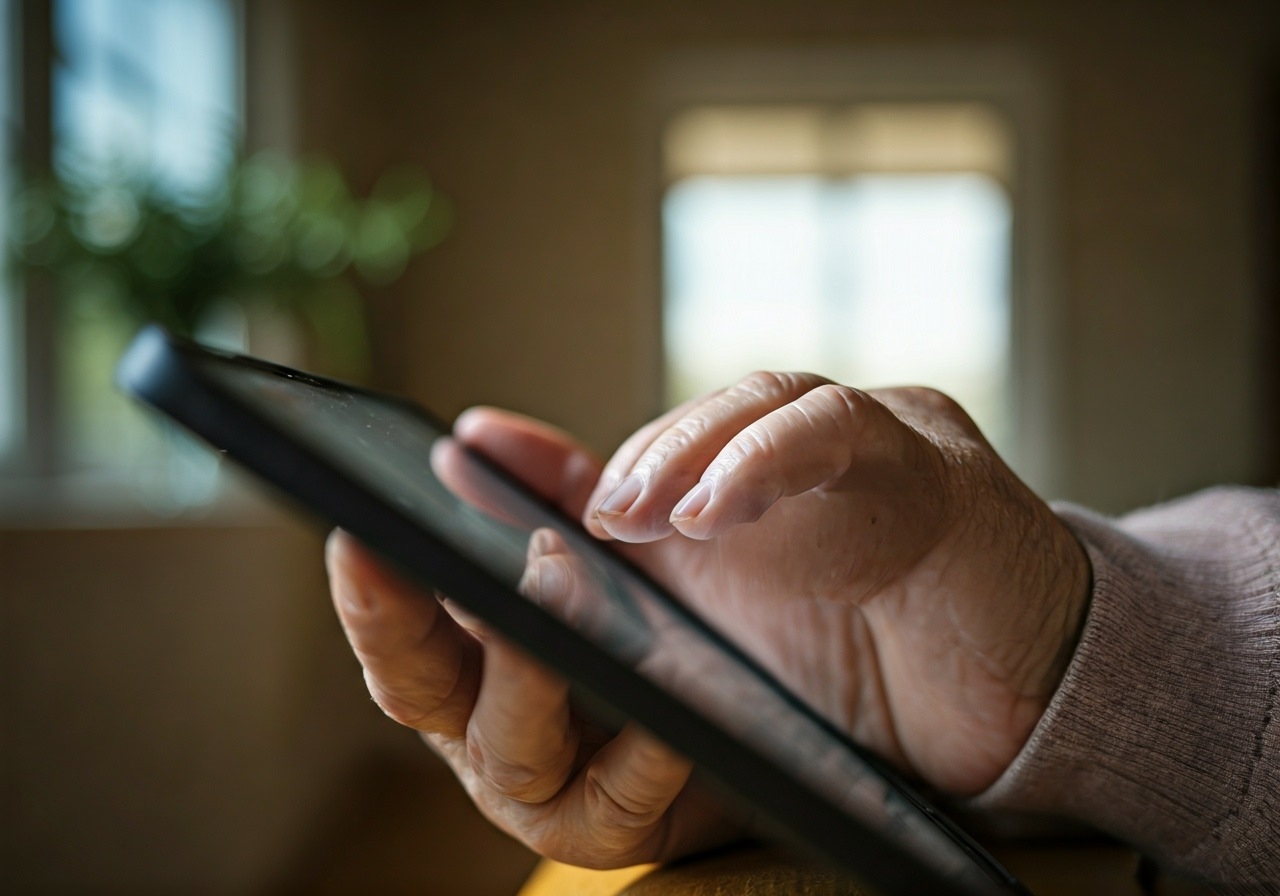
Technological advancements are making a big difference in the mental health of older adults. Telehealth services give easy ways for them to meet mental health professionals. Seniors can get therapy at home, which is more comfortable for many. There are also many apps and websites with good tools to help manage mental health conditions. These can help track depressive symptoms or help with mindfulness. But, there is a need to look at digital literacy challenges. It is important that older adults know how to use these digital tools. When we help them get familiar with this technology, we help them stay connected with others. This support can make their mental health better and keep them feeling good over time.
Telehealth and remote counseling have changed the way older adults get mental health care, especially for those in places where there is not a lot of health care. With secure websites and online platforms, seniors can talk to mental health professionals while staying at home. This helps people who have trouble moving around or getting transportation. These services let people get help for anxiety disorders and depressive symptoms right away, which can improve their quality of life.
Telehealth also gives people who are alone a way to connect with others. It helps them get support and keep track of their mental health conditions. As technology gets better, having these services will be important for complete care of older adults.
There are now many new apps and online tools that help with the mental health of older adults. These can make it easy to find mental health information. Some of these apps let people track their mood, use simple thinking exercises, and try guided mindfulness. Some programs are made for seniors. They have user-friendly designs to meet the needs of older adults. Telehealth services also make it simple to talk with mental health professionals at home. This lets people get care that fits their own situation. By using technology, older adults can feel better, feel less alone, and be active in taking care of their mental health.
Digital literacy can be a big barrier for many older adults who want to use mental health services. These days, more people are using telehealth and online tools for their care. But, some seniors do not feel at ease with technology. This can make it hard for them to get the help they need for their mental health.
Many older adults may find it tough to use digital platforms. That can keep them from joining virtual counseling sessions or finding mental health information online. To help with these problems, there should be special training to help the elderly learn and use technology better. Giving simple guides and one-on-one help can make a big difference. It can help them get better with tech, feel more in control, and stay in touch with health care providers to support their mental health.
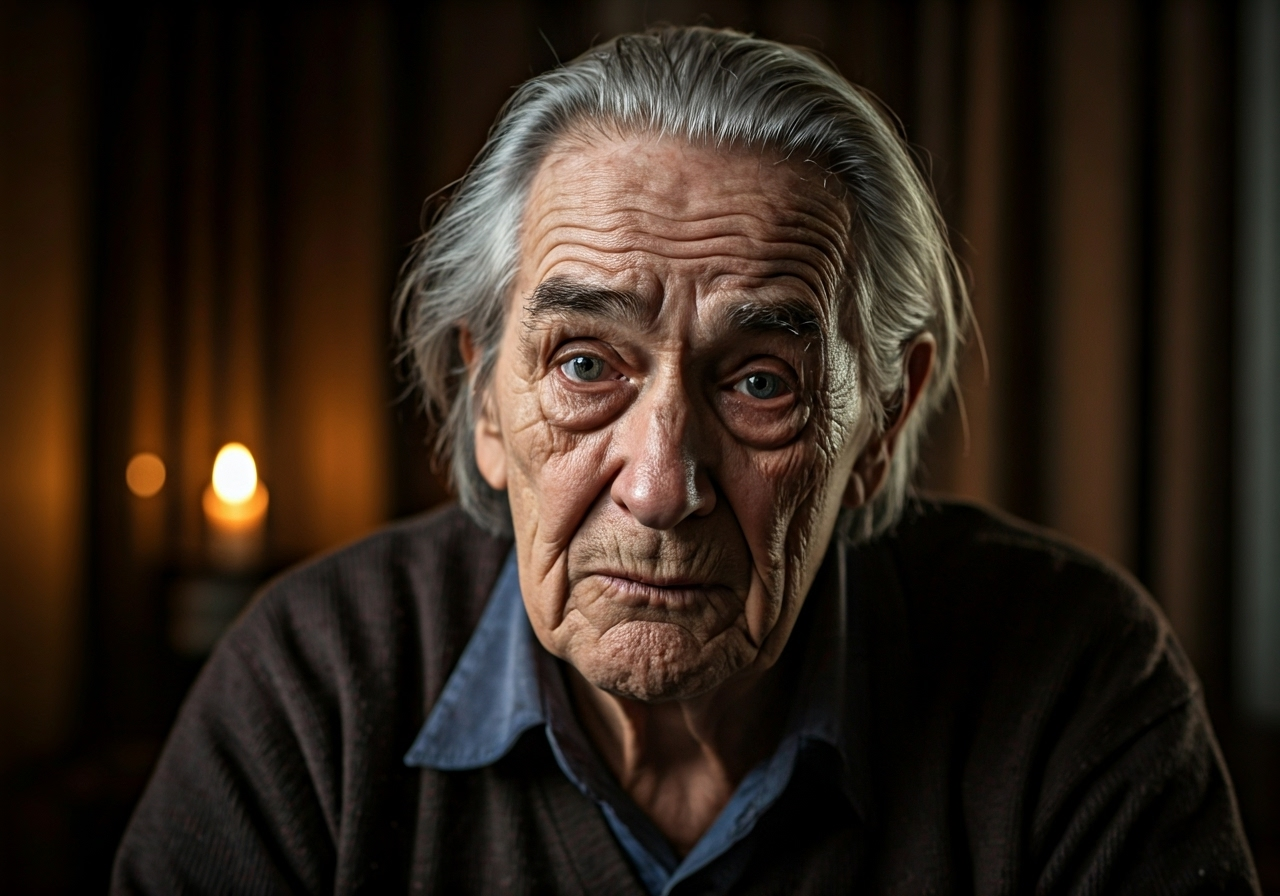
It is important to see the signs when older adults face any kind of abuse. Abuse can hurt their mental health in many ways. Some people may feel a lot of worry or sadness. There is also the risk of them thinking about ending their life, also known as suicidal ideation. When these people do not have support or friends, their struggles may become worse. This can bring down their quality of life. We should learn how to spot these signs and know what to do if we see them. Having clear ways to report and stop abuse can help. When mental health workers and social services work together, we can do more to help people. This way, older adults can have better support and a safer place to live.
Physical, emotional, and behavioral signs can show when there might be abuse or neglect in older adults. You might see injuries that do not have a clear reason, or you might notice sudden changes in how someone acts. Some people may also stop talking to others or joining in social activities. These things can point to a problem. Other signs are poor hygiene, losing weight without a reason, or not getting the medical care they need. This often means there is neglect. In mental health, things like anxiety, feeling very low, or acting more upset or scared than usual can be reactions to abuse. It is good when health care staff and caregivers watch for these signs and talk openly. When they see these signs early, they can step in quickly and keep older adults safe and well.
Going through elder abuse has a big impact on mental health. People who face this may get anxiety disorders and depressive symptoms. There is also a higher risk of getting thoughts about suicide. The pain from the abuse can make them feel helpless and lead to social isolation. This can also make other mental health conditions worse. For older adults, the stress and strong emotions can hurt how well they think and remember things, so cognitive decline can go up. To bring back their dignity and help their quality of life, it is important to help with these mental health problems. A good plan will use trauma-informed care and support from mental health professionals. These steps help people heal and give them a better way to live.
Reporting elder abuse in Texas means calling local authorities or adult protective services right away. Taking fast action is important. Quick reporting can help lower mental health problems that often come from the abuse. Health care providers need good training. The training helps them spot signs of abuse and know how to respond the right way.
People who work in social services, law enforcement, and mental health must work together. They need to connect and share information for a united way to help. Community members should learn about these steps too. Ongoing education about what to do can help people be ready. When everyone knows how to report and respond, seniors get better protection and good mental health care. This also helps them get the support they need.
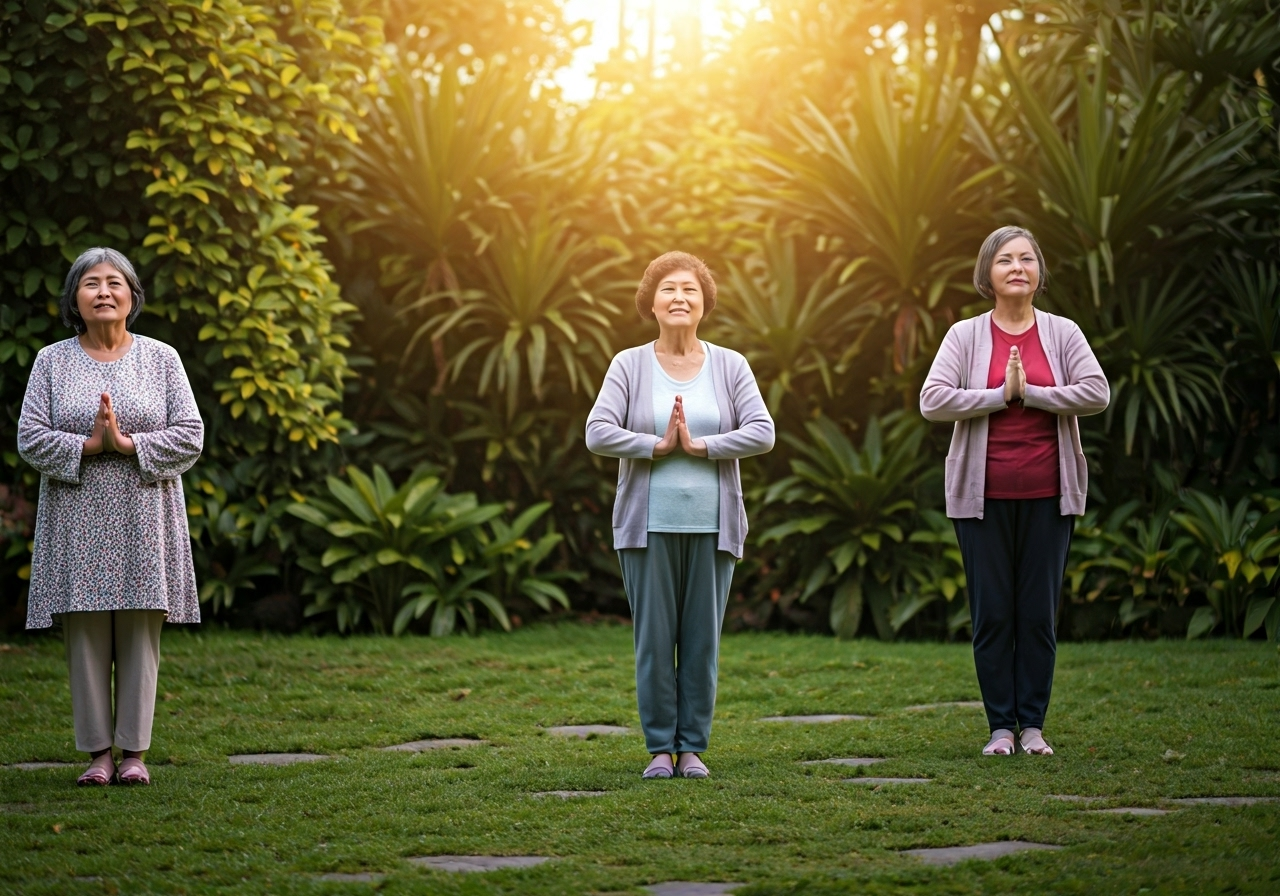
Helping older adults build strength to deal with life’s ups and downs is key. Using things like mindfulness and ways to lower stress is good for their mental health. These simple steps give them tools to use when life gets hard. When people take part in community programs that teach them how to handle tough times, it can help with social isolation, which is a problem many face. When they spend time with others and talk about what is going on, it helps everyone feel better. This brings people together. As older adults build these skills, with other people by their side, their quality of life can get better. This also makes the whole community stronger and more lively.
Emotional resilience is very important in helping older adults have a better quality of life. It helps them deal with mental health challenges that they may face. There are many ways to help build this resilience. The first one is to help them create strong social connections, which can fight off feelings of social isolation. Being part of community activities or support groups can help older adults feel like they belong. It also gives them needed support and encouragement.
Doing mindfulness practices like meditation and yoga can help people manage their emotions better. These activities can also lower depressive symptoms. When mental health services focus on these steps, they can really help older adults who have mental health conditions. All of this improves their mental health, which makes life better for them.
Practicing mindfulness can really help improve mental health for older adults. Simple methods like deep breathing, relaxing your muscles one at a time, and guided imagery help you be stronger emotionally. This can lower anxiety and help with depressive symptoms. When you take time for mindfulness meditation, you start to notice your feelings and thoughts more. This can make it easier for seniors to handle stress.
Activities like yoga and tai chi also get the body moving, which helps with physical health while also keeping the mind calm. Both mental health and physical health can get better with these activities. You can add these things to your daily routine to help manage mental health conditions. Doing these practices often gives seniors a safer, better place to live and improves their overall quality of life.
There are many community programs that help older adults build better coping skills. The aim is to help with mental health by giving people the tools they need to handle tough feelings. These programs often have support groups. In these groups, people can meet others, build new friendships, and feel less alone. This helps fight social isolation, which can be bad for mental health.
Workshops are common in these programs. They offer tips on how to use mindfulness and handle stress. Seniors learn small steps they can take each day for less worry and anxiety. Taking part in art, music, and exercise can also help. These activities give people a way to feel better in the moment and over time.
Community programs often team up with local mental health experts. By working together, they can help older adults in more ways. The goal is for every senior in the area to get the support they need and improve their well-being. This complete care means older adults can enjoy a good quality of life, even as they get older.

To spot substance use in older adults, you need to know that this group faces some special challenges. Some of them may misuse their prescription medicine. This can lead to mental health conditions like depressive symptoms or anxiety disorders. Many of them might turn to alcohol or other drugs to cope with loneliness or health problems. This may make these mental health problems worse. When there is early help, support, and good treatment, things can get better. Working together with mental health experts and primary care providers is important. This team approach helps find and treat substance use. It can also make the quality of life better for older adults with these health problems.
Recognizing substance abuse in older adults can be hard. This is because many health problems and psychiatric disorders can look like signs of misuse. Sometimes, there can be small changes in mood. A person may pull away from others or stop caring for their hygiene. These can be signs that something is wrong with alcohol or prescription drugs.
Doctors in primary care can use regular screening tools like the Geriatric Depression Scale. These help find the risk factors for addiction. It is also important that family members learn about substance abuse and its health problems. When they know what to look for, they can help their loved ones. This helps seniors keep their life balanced and healthy.
There are many ways to help older adults deal with substance use. Each person can get a treatment plan that fits their needs. Many times, this plan will have therapy. Cognitive-behavioral therapy is one type that can help with things like depression, mental health, and anxiety disorders. Being part of support groups lets people talk with others. This helps with social connection and makes them feel less alone. Working with doctors and other healthcare providers is key. They watch how well the treatment is working and can change medicines so there are fewer side effects. Family members can also help. When they get involved, they give the support and care that make it easier to keep going. This works well for older adults who are facing mental health or substance use issues. Everyone works together to give the best possible care and support.
Tackling prescription medication abuse in older adults needs a hands-on way that includes both caregivers and health care workers. Checking medicine lists often helps spot when people might be misusing their medicines. This also helps doctors or nurses know when to change the treatment. Using full check-ups like the patient health questionnaire helps watch for depressive symptoms and anxiety disorders that can lead to misuse. Teaching about the dangers linked with some medicines, and talking openly about mental health conditions, helps older adults stick with their medicine the right way. This can lower the chances of needing more medicine or having bad health problems.
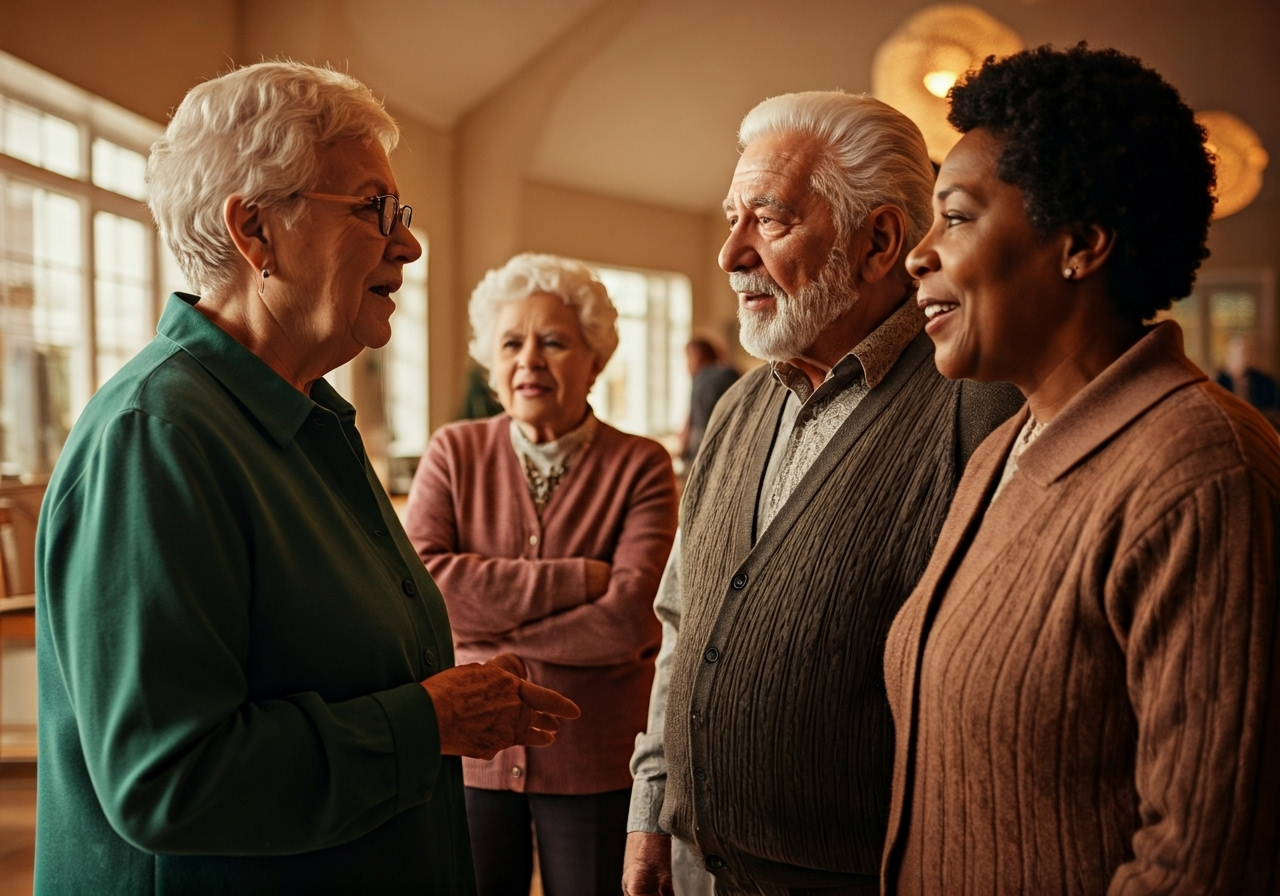
Mental health disparities hit minority and underserved groups hard, so it is very important to make interventions fit their cultural needs. Barriers like stigma and not having easy access keep many older adults from getting the mental health care they need. There is a need to know the unique things they go through and the health problems they have. This helps to make mental health treatment plans that work better for them. Local resources really help in closing these health care gaps, as they provide services that match different cultures. Getting advice from community leaders and using what they know can make outreach stronger. That way, mental health services will be more open, fair, and ready to help everyone.
There are big differences in mental health between different ethnic groups. This happens because of things like cultural stigma and not having easy access to mental health services. Many people in these groups do not get the right diagnosis for issues like major depression or anxiety disorders. Social isolation and not having enough money can make these problems worse. Some programs have to be made for these groups. These programs need to include education and care that understand their culture. When primary care providers do mental health screenings, it can help with these common problems. This makes it easier to give the right treatment plans. More help and the right actions matter a lot for improving the quality of life for these communities, who can often be left out.
Culturally tailored ways of care can help make mental health care work better for older adults. It is important to know about the different backgrounds, beliefs, and values people have. These things can change how someone thinks about mental health care, and if they will use mental health services or not. Using screening tools that are sensitive to a person’s culture helps to find risk factors that are unique to each person. This makes it possible to give them a treatment plan that fits what they need.
Collaborative care models support this process. When health care providers get training to understand culture, they can make older adults feel welcome and safe. Involving community leaders and using local resources makes it easier for seniors to get mental health help. This also builds trust. When people trust their health care providers, they are more likely to keep using mental health care, show up for treatment, and improve their quality of life.
In Houston, there are a number of groups that support the mental health of minority older adults. Avance Houston and the Hispanic Health Coalition work to give help and information. They talk about mental health problems that older people often face, like depression and anxiety disorders. You can also find local community centers that hold workshops and simple social meet-ups. These help older adults fight social isolation and spend time with others.
The Mental Health America of Greater Houston gives screenings and care with different cultures in mind. This makes mental health services easier to get for everyone. If older adults use these groups, they can find important support, improve their own quality of life, and help with their health promotion.
Policy initiatives are very important for better mental health care for older adults. Advocacy groups work with government groups to help make new laws that support the mental health needs of seniors. They tell people about mental health conditions and show why it is good to have careful checks and help for these people. By doing this, they help create a place where the most at-risk people get support. When these groups work with the National Institute of Mental Health and the Mental Health Services Administration, they help make sure real research and good methods are used in elder care. In the end, these actions are to help people have a better quality of life, to stop stigma, and to give the resources older adults need for mental health care.
In Texas, state and local rules have a strong effect on mental health services for older adults. Laws work to make it easier for people to get mental health care. There is more money going to mental health programs, and there are efforts to help people feel less worried about talking about mental health problems. The Texas Health and Human Services Commission helps with full mental health tests. They make sure mental health checks happen in normal health care and in primary care settings, too. Local groups and health care providers work together to help meet the unique needs of older adults. Their work aims to give better mental health for seniors, improve their quality of life, and make health care better for everyone in the state.
Advocacy groups have a big role in helping to improve mental health care for older adults. They speak up for the needs of these people and work to raise awareness through education. These groups use the resources they have and work with health care experts. Their work helps to deal with important problems like substance abuse and the shame that comes with mental illnesses.
They also push for changes in rules and laws, so older adults can get better mental health services. This means people have a better chance to get checked and find the right mental health care that fits them. The work they do in health promotion helps make life better for seniors. It also gives them the strength to deal with tough feelings now and in the future. In this way, advocacy groups make a real difference in the quality of life for older adults.
Engagement in mental health advocacy often starts in small, local areas. You can help by giving your time to local groups that focus on health care for older adults. This helps others in the area know more about mental health and the support that’s out there. If you join in community meetings or attend workshops, you can also help more people understand these issues. This can help change rules or plans for better mental health care in your area. Telling your own story or speaking up at public events may show people why mental health for older adults matters. The internet is another good place to take part in mental health campaigns and connect with others who care about health care and mental health for older adults. This helps all of us work together to make things better.
Training programs about geriatric mental health help elder care providers see and work with mental health conditions in older adults. If caregivers do a full check and then use proven ways to help, it can really make care better for older adults. Keep learning about mental health helps them spot things like depressive symptoms, anxiety disorders, and problems with memory or thinking. When mental health professionals work together with other caregivers, it brings a better, more complete way to help. Putting time and effort into training and education means elder care workers can give more support for the mental health of older people. This helps with their emotions and wellbeing.
Specialized programs for geriatric mental health are very important. They help health care providers get the skills they need to work with mental health in older adults. These programs teach about depression care management, anxiety disorders, and cognitive impairment. This helps people in health care better understand the mental illnesses that show up in this group. These certifications make sure providers get to know tools like the Geriatric Depression Scale and the Patient Health Questionnaire. With this knowledge, primary care settings can set up good treatment plans and use collaborative care. As a result, the quality of life for seniors who have mental health conditions gets better.
Ongoing learning about mental health is very important for everyone who takes care of older adults. When care providers join training, they stay up to date with new ideas about geriatric mental health. They learn about the best ways to check for mental health conditions and new ways to help. Using proven practices in their work can make life better and raise the quality of life for older adults who have things like anxiety disorders or depressive symptoms. Knowing about problems like these helps the staff find these troubles early. It also helps people work together in a collaborative care team, which is very important for this group.
Using the best ways to train staff is very important for dealing with mental health issues in older adults. Health care teams need training plans that use methods which have been tried and tested. These kinds of approaches, like collaborative care, help in spotting signs of depression and anxiety disorders in a better way.
Staff should go to regular workshops and get updates about geriatric mental health. These workshops can teach them how to use screening tools such as the Geriatric Depression Scale. This helps to build a good and caring place for everyone.
Also, having role-playing sessions lets staff practice how to talk to residents about sensitive things. This can make all staff more aware, and help give proactive mental health care. The training creates a strong culture of support and good mental health for older adults in assisted living communities.
Successful aging is about caring for the body, mind, and social life. The older adults who keep up with regular physical activity and make healthy choices can see a big jump in their well-being. These habits can also lower health problems. Mental health is just as important. Mental health services are there to help with things like depressive symptoms and anxiety disorders. Taking part in social activities helps people connect with their community. This can cut down on social isolation, which is a major risk for mental health issues. There are programs that look at all these key areas at the same time. These programs help improve the quality of life for older adults. They help them not just live longer, but also have a good life in their later years.
Success in aging is about looking after the body, mind, and social life. It is important to stay active, keep the mind busy, and connect with people. The World Health Organization says that living in a good, caring place can help lower risks like depression and losing memory. Taking steps for good mental health care, before there is a problem, helps raise the quality of life. Health care programs built for older people should focus on health promotion and getting people involved in the community. This can help them feel better and live a life that is full and meaningful, even in their later years.
Holistic wellbeing for older adults is about helping them feel better in their mind, body, and social life. There are many programs to improve mental health and physical health. These often have workshops on things like mindfulness, good food, and exercise. Seniors can take part in fun and helpful tasks. The use of collaborative care is key. This lets teams look at both mental health conditions and health problems in the body at the same time. These programs help with signs of anxiety and depression. At the same time, they help older adults meet people. This can cut down on feeling alone. When people work on being strong emotionally and stay open to learning over their lifetime, they can have a much better quality of life.
Looking at case studies from different elder care facilities in Houston gives us some good ideas about how well integrated mental health services can work for older adults. One place used a collaborative care approach. This method helped lower depressive symptoms in their residents. At another center, they did regular mental health screenings. Doing these checks made it easier to find anxiety disorders early and helped with other mental health conditions.
Both approaches led to a better quality of life for older adults. They also helped create a caring community for everyone there. The people felt less social isolation, which led to better mental health outcomes for all. These examples show how using the right mental health services can really make a difference for older adults and can help shape future elder care projects.
It is important to see how elderly care and mental health go together as a way to make life better for older adults. Many mental health conditions in this group do not get noticed or treated, so it is good to have regular checks and get help early. When family, caregivers, and mental health professionals work as a team, they give seniors the support they need. It also helps to deal with things that stop them from getting care, like not having much money or not being able to travel. When we focus on these steps, we help older adults face hard times and live better, healthier lives. Access to mental health services is very important if we want to improve the quality of life for everyone in our senior communities.
Riaz Counseling is in Houston, Texas, and it accepts Medicare Advantage plans. If you or someone in your family needs help with mental health or mental health services for seniors, you can call our office. We offer a free first talk. We want to help you in any way we can.
Some of the early signs of mental health issues in seniors are feeling sad for a long time, having mood swings, staying away from friends or things they used to enjoy, eating or sleeping less or more than usual, and finding it hard to focus. Seeing these signs early is important. It helps people get support and makes a big difference to their well-being.
Families can help older loved ones who have depression. It is good to talk openly with them and listen. Give them your care and support so they do not feel alone. You can help by making it easier for them to talk to a doctor or counselor. Try to get them involved in things with other people. A healthy daily routine, like good meals and regular sleep, is also helpful. Doing all this can make home a better place for them and help them start to feel better.
Yes, Houston has different resources for senior mental health care. There are community mental health centers, special geriatric mental health programs, and support groups. Groups like the Alzheimer's Association and local hospitals also have services made to help the mental health of older adults. They focus on the mental health care that older people need.
Family members play a key part in helping the mental health of older adults. They can spot any signs that something be wrong, and they can help open up talks about how someone feels. Family can give support to seniors while still letting them have some say in their own lives. When the people in a family work together and show care, it helps older adults feel stronger inside and do well both in body and mind. This kind of support is good for the mental health of older adults.
If you feel that you or someone you know, may benefit from therapy, please reach out to our office for a FREE 15 minute consultation: LINK.
Stay informed about the latest research in psychology.

Discover how Houston schools support student mental health with early intervention, resilience programs, and community-based services.

Explore effective mental health strategies in schools to boost student well-being, attendance, and learning outcomes.
.png)
Key insights on elderly mental health, addressing common conditions, risk factors, and support strategies.